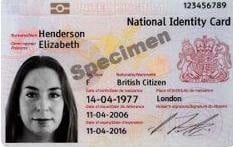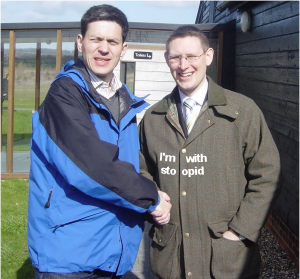I just took the bullshit UK citizenship test on the Home Office’s practice website.
I’m not entirely convinced that creating a website that gives you the answers to the questions you’re going to get in the test is such a good idea although if you want to make sure that nobody fails, it’s a brilliant plan. Hopefully the English test isn’t judged by the person who wrote the website because they used the wrong spelling of practice (the website is a thing, not a doing).
I got 50 which means I failed. Which is hardly surprising because the questions really are, as I mentioned in the opening line of this post, bollocks.
Q1: In the 1980s, the largest immigrant groups were from the West Indies, Ireland, India and Pakistan.
I said true but apparently it wasn’t, it was Americans, Aussies, South Africans and Kiwis.
Q2: Which TWO of these are names for the Church of England?
I said Anglican and Presbyterian but apparently it’s Anglican and Episcopal. The other option was Methodist.
Q3: How many parliamentary constituencies are there?
I said 646 and I was right. The other options were 464, 564 and 664.
Q4: Which of these statements is correct?
Education at state schools in the UK is free and this includes the cost of school uniform and sports wear
Education at state schools in the UK is free but parents have to pay for school uniform and sports wear
The second one is the right answer of course, unless you’re an asylum seeker in which case you can get a grant.
Q5: Many job applications will require a covering letter and
a document showing proof of identity
your national insurance number
a Curriculum Vitae
a signed photograph
The answer is, of course, a CV but a lot of companies now are so scared of being prosecuted for employing illegal immigrants that they insist on a copy of your passport or driving licence even if you’ve lived your whole life here.
Q6: ‘Ulster Scots is a dialect which is spoken in Northern Ireland.’
I said false but the answer was true which I actually did know but I must have misread the question.
Q7: In which year did married women get the right to divorce their husband?
1837
1857
1875
1882
The answer is 1857 but really, who actually knows the answer to that question?
Q8: In which TWO of the following places does the European Parliament meet?
London
Strasbourg
Paris
Brussels
The answer is Strasbourg and Brussels which I got right naturally. Interesting that a question relating to EU citizenship should be in the British citizenship test but it’s not the only one.
Q9: Which of the following TWO types of people get their prescriptions free of charge?
People aged 60 or over
People aged 18 or under
Pregnant women or those with a baby under 12 months old
People on the minimum wage
Now, there must be a different version of this test in Scotland, Wales and Northern Ireland because in Wales the answer is everyone and in Scotland and Northern Ireland it’s nearly everyone. The answer in England is People aged 60 or over and pregnant women or those with a baby under 12 months old. I answered that one incorrectly, I think I was too busy seething about the question.
Q10: ‘Adults who have been unemployed for six months are usually required to join New Deal if they wish to continue receiving benefit.’
I answered true because I’m not au fait with this particular bullshit scheme for occupying lazy unemployable people. It’s false though, it’s 18 months. Like it matters.
Q11: The number of children and young people up to the age of 19 in the UK is
13 million
14 million
15 million
16 million
The answer is 15 million, I said 16 million. Why would anyone need to know this?
Q12: The percentage of people in the UK in 2001 who said they were Muslims was
1.6%
2.7%
3.4%
4.2%
I said 3.4% but it’s actually 2.7%. The others presumably said “no speaky English” like they usually do when a white man in a suit knocks on their door (I’m speaking from experience here).
Q13: A quango is
a government department
a non-departmental public body
an arm of the judiciary
an education establishment
None of those is really correct (it’s a Quasi Non-Governmental Organisation) but non-departmental public body was the closest and “correct” answer.
Q14: ‘You can attend a hospital without a GP’s letter only in the case of an emergency.’
The “correct” answer is true according to the test but the right answer is false because hospitals provide many drop-in clinics where you don’t need a letter from your GP.
Q15: Information about training opportunities can be found from which TWO of the following?
The local library
The local council offices
Learndirect
The Home Office
The answer is local library and Learndirect. I got that one right.
Q16: Which of the following statements is correct?
Information in the census is immediately available for the public to search
Information in the census is kept secret for 100 years
I answered that it is kept secret for 100 years (not strictly true – it’s shared widely with quangos) which was the “correct” answer.
Q17: Which TWO of the following can vote in all UK public elections?
Citizens of the Irish Republic resident in the UK
Citizens of EU states resident in the UK
Citizens of the Commonwealth resident in the UK
Anyone resident in the UK
I said EU and Commonwealth but it’s Irish and Commonwealth. I was going to disagree but I just noticed the word “all” in there.
Q18: Schools must be open
150 days a year
170 days a year
190 days a year
200 days a year
I randomly chose 190 which is the right answer. I have 4 children, 3 of which are in school and I really didn’t know. Who, other than a teacher, would know?
Q19: From which TWO places can you obtain advice if you have a problem at work and need to take further action?
The Citizens Advice Bureau (CAB)
Your local MP
Your employer
The national Advisory, Conciliation and Arbitration Service (ACAS)
The correct answer is CAB and ACAS. I got this one right too.
Q20: The official report of the proceedings of Parliament is called
the Speaker’s notes
Hansard
the electoral register
the constitution
The answer is, of course, Hansard.
Q21: Which of these statements is correct?
For cars and motorbikes the speed limit on single carriageways is 60mph
For cars and motorbikes the speed limit on single carriageways is 70mph
The “correct” answer is 60mph but that’s not true because the car hating British government has encourage the car hating nazis in local councils to reduce speed limits to often ridiculously low speeds and as a result, the speed limit on single carriageway roads can be anywhere between 5mph and 60mph.
Q22: A by-election is held
half-way through the life of a Parliament
every two years
when an MP dies or resigns
when the Prime Minister decides to call one
Again, one that can’t be answered correctly. The “correct” answer is when an MP dies or resigns but an MP can’t resign, they have to apply for a job as a paid agent of the Crown – usually the Crown Steward and Bailiff of the three Chiltern Hundreds of Stoke, Desborough and Burnham or Steward of the Manor of Northstead – at which point they become ineligble to sit in the Commons and are removed from office as an MP. You see, this is the sort of thing that should be in a citizenship test.
Q23: Which of these statements is correct?
Children aged 13-16 cannot work more than 12 hours in any school week
Children aged 13-16 cannot work more than 10 hours in any school week
The correct answer, apparently, is 12 hours. I said 10. But again, who knows this sort of stuff generally?
Q24: Which of the following statements is true?
The governing body of the EU is the Council of the European Union
The governing body of the EU is the Council of Europe
It’s the Council of the European Union apparently but I’ve only ever heard it called the Council of Europe. The right answer, of course, is France and Germany but that wasn’t one of the options.
So there you have it, 24 questions of complete bollocks, some of which were impossible to answer correctly and all utterly trivial.
 Technorati Tags: Citizenship Test, Bollocks
Technorati Tags: Citizenship Test, Bollocks
 Technorati Tags: Met Office, Climate Change
Technorati Tags: Met Office, Climate Change

 There was a suggestion that it would have the European Empire’s ring of stars on it but no, it’s not going ot have any flag on. Apparently, it was thought that the butchers apron might upset the Irish. Diddums. The British Home Secretary, Alan Johnson, says that Northern Irish people will be able to have an ID card that says they’re Irish instead of British. That’ll please the Scots and Welsh. Will English people be able to get an ID card that says they’re English?
There was a suggestion that it would have the European Empire’s ring of stars on it but no, it’s not going ot have any flag on. Apparently, it was thought that the butchers apron might upset the Irish. Diddums. The British Home Secretary, Alan Johnson, says that Northern Irish people will be able to have an ID card that says they’re Irish instead of British. That’ll please the Scots and Welsh. Will English people be able to get an ID card that says they’re English?

 anxious about swine flu or convinced they had it when they didn’t. This is presumably why I got an engaged tone for 15 minutes this morning trying to get an appointment. Does it help that the British government has told the general public that up to 65k people could die from swine flu? In his opinion it wasn’t the best move, let’s just leave it at that.
anxious about swine flu or convinced they had it when they didn’t. This is presumably why I got an engaged tone for 15 minutes this morning trying to get an appointment. Does it help that the British government has told the general public that up to 65k people could die from swine flu? In his opinion it wasn’t the best move, let’s just leave it at that.
 David Millibeast, the 14 year old work experience Foreign Minister,
David Millibeast, the 14 year old work experience Foreign Minister,  Back in September a group of hippy freaks from Greenpeace broke into Kingsnorth power station and caused £30k of damage. They got away with it because they convinced a judge that their bullshit discredited climate change theories said that the power station would cause more damage to the environment than they were causing to the power station so their vandalism and criminal damage was justified.
Back in September a group of hippy freaks from Greenpeace broke into Kingsnorth power station and caused £30k of damage. They got away with it because they convinced a judge that their bullshit discredited climate change theories said that the power station would cause more damage to the environment than they were causing to the power station so their vandalism and criminal damage was justified.